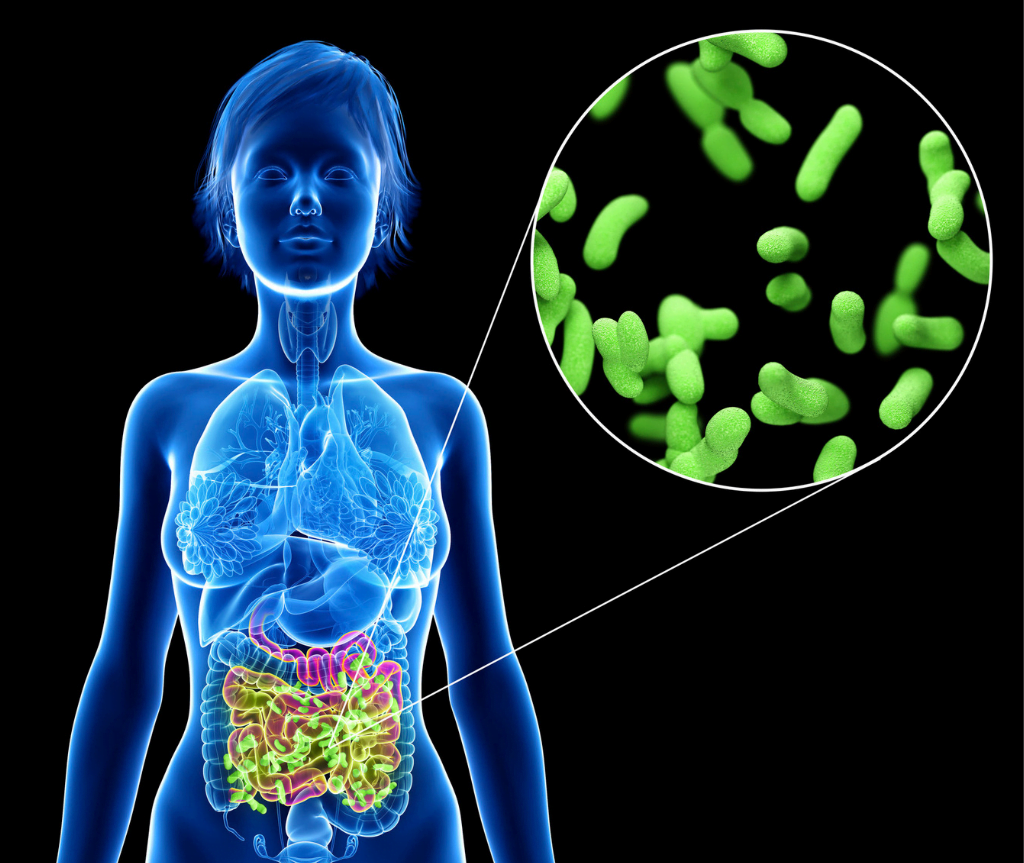Sometimes inflammation feels like an invisible weight — you can’t always see it, but you feel the sluggishness, the low mood, or the lingering aches that come when the body is quietly struggling. What many people don’t realise is that anti-inflammatory gut bacteria play a major role in easing this hidden internal stress.
It often surprises people to learn that one of the strongest influences on chronic inflammation isn’t a supplement or a test… but the garden of microbes living in your gut.
I still remember the moment a nutrition researcher once told me, “Your gut talks to everything — your brain, your immune system, even your mood.” It stayed with me. And over the years, the science has only grown stronger: when your gut bacteria are in balance, they can help lower inflammation and support long-term health in remarkable ways.
Why Gut Bacteria Matter
Think of your gut microbiome as a densely populated city. Everyone has a role — digesting fibre, making nutrients, supporting immunity, and maintaining balance. When the city is well-balanced, life flows smoothly. When it’s not, things can get noisy, chaotic, and inflamed.
Here’s how a healthy microbiome becomes one of the body’s calmest mediators:
- Breaking down fibre into SCFAs (Short Chain Fatty Acids): If you’ve ever added more vegetables or whole grains to your meals and felt “lighter” or more energised, that’s partly the work of short-chain fatty acids like butyrate nourishing your gut lining.
- Modulating the immune system: Friendly bacteria help your immune system stay responsive without overreacting — almost like a wise friend who reminds you to take a breath before reacting.
- Keeping harmful bacteria in check: When beneficial microbes are thriving, they naturally crowd out troublemakers.
Producing anti-inflammatory molecules: Some bacteria release compounds that act like tiny peacekeepers in the gut.
The Gut–Inflammation Connection
Your immune system isn’t just on duty when you’re sick — it’s always working, always listening. And a surprising amount of that work happens in your digestive tract. Around two-thirds of immune cells reside there, interpreting signals and determining how to respond.
When the microbiome is healthy, this system feels steady and grounded. When it’s out of balance, the body can slip into an over-alert state. Many people describe this as feeling “inflamed from the inside out” — tired, foggy, or easily run down.
A resilient gut lining also acts as a strong gatekeeper, allowing in nutrients while keeping irritants out. When this barrier weakens, unwanted substances can enter the bloodstream and fuel inflammation — a process you might sometimes hear described as “leaky gut”.
How Your Microbiome Helps Calm Inflammation
The gut isn’t just a passive system; it has its own toolkit for bringing down inflammation:
- Balancing immune responses so the body doesn’t stay stuck in defence mode.
- Producing SCFAs like acetate, propionate, and butyrate, which soothe the gut and support overall immune balance.
- Blocking harmful bacteria from settling in and triggering inflammation.
- Stimulating anti-inflammatory cytokines, which act like calming messengers throughout the body.
Strengthening the gut barrier helps your immune system function with clarity rather than confusion.
You may notice that when you eat well, sleep enough, and manage stress, your digestion feels smoother. This isn’t a coincidence — your microbiome becomes more diverse and active, and inflammation often drops naturally.
The Anti-Inflammatory Role of Probiotics
If you’ve ever eaten a spoonful of yoghurt or tried kefir for the first time and felt an unexpected sense of nourishment, that’s the quiet power of probiotics. These beneficial bacteria help refill the gut with strains that support balance and immunity.
Research shows they can:
- Boost beneficial immune cells
- Strengthen the gut barrier
Improve the body’s response to infections and even vaccines
And importantly, they help the microbiome recover from stressors — antibiotics, travel, illness, or even a few weeks of convenience meals.
Fermented foods, such as kimchi, miso, sauerkraut, and kombucha, can be simple and joyful ways to incorporate probiotics into your daily routine. Many people find that adding just one of these foods regularly helps them feel more settled in their digestion and energy.
The Bottom Line
Your gut microbiome is a powerful ally — a living system that responds to your daily choices and actions. When you nourish it with fibre-rich foods, fermented ingredients, and a diverse range of plants, you give your body the tools it needs to calm inflammation naturally.
Small habits make a big difference. A handful of berries, a bowl of oats, a spoonful of kimchi, a quiet walk after dinner — these moments add up. And over time, you’ll feel the shift: more clarity, steadier energy, and a sense of well-being that comes from deep within.



